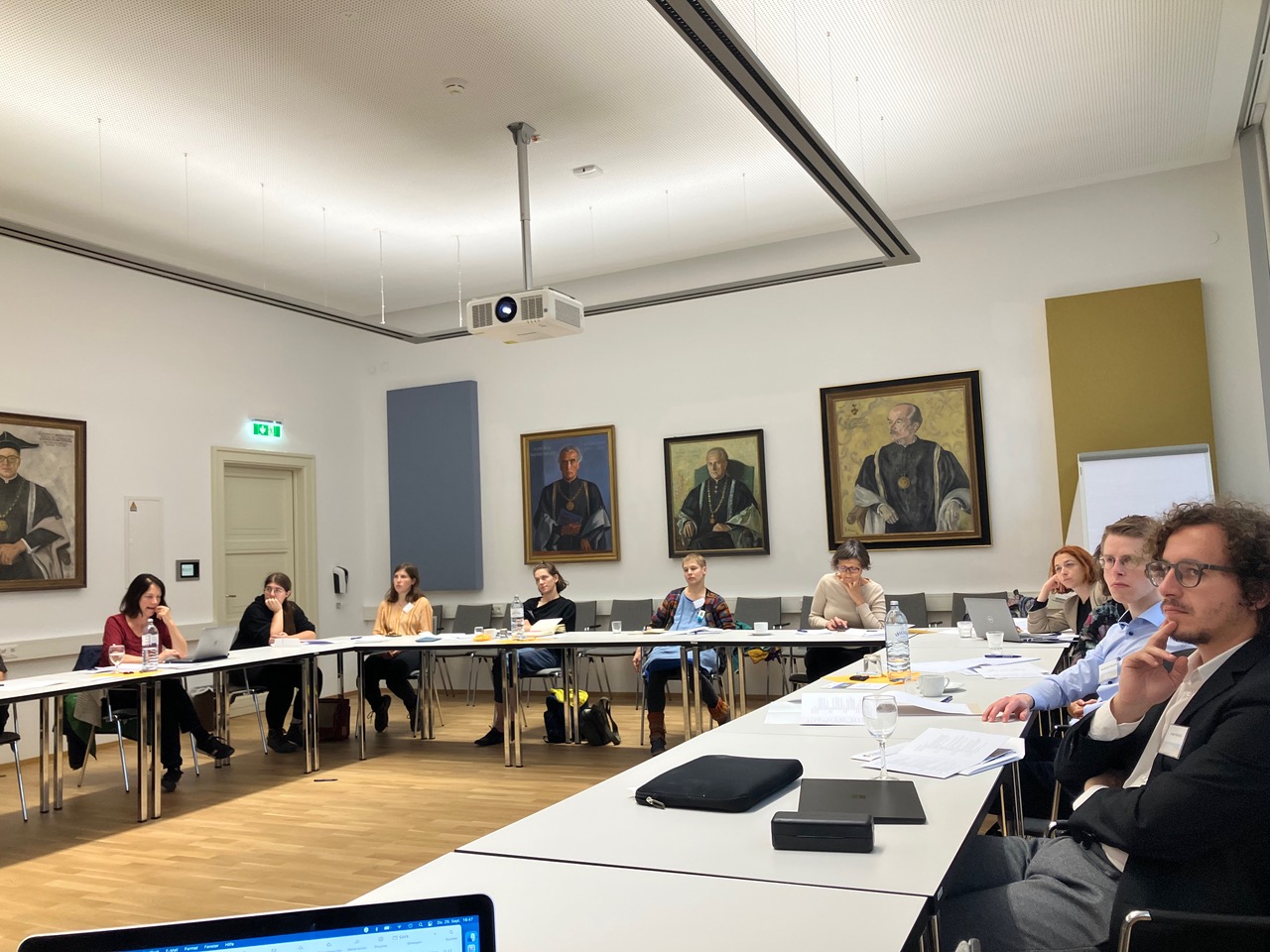
The University of Innsbruck
Working Group Historical Approaches in Cultural Analysis HACA
Report on the conference ‘Past Futures. Historical Approaches to the Analysis of Uncertainties and Ruptures,’ held at the University of Innsbruck.
This hybrid conference took place in Innsbruck (Austria) in September 2022 and was organized and hosted by the Departement of History and European Ethnology of the University of Innsbruck and the SIEF-WG "Historical Approaches in Cultural Analysis HACA".
Starting from the very uncertainty of our present days experienced by all of us, the aim of our conference was to focus on "past futures" as we have put it in a somewhat strange term. We were interested in differing strategies of adaptation to ruptures and crises, in ideas of the future, as unclear and blurred as they may be part of the field-material. The various references to the future can be understood as different ways of coping with crises. By doing so, as researches with a background within a broad field of cultural studies, we mainly put our concern on cultural processes in the form of meanings, attributions, narratives, i.e. we are interested in thought and discursive practices of constructing culture. "Past futures" can show up in different sources and in a vast range of empirical material, for example in tales and stories, in letters, or correspondences, in protocols or reports, in scientific texts but of course in first-person documents. The papers thus dealt with the manifold possibilities of “common people” reacting to ruptures, threats, dangers and challenges in their everyday lives. They do so by imagining futures, speaking of them, writing them down, or making them concrete and manageable in their lives. Future can thus either be an emic term from the field, sometimes used explicitly within the sources, or future can be more an implicit concept that actors frame by their practices. During the last years, there has been an increasing interest for questions of future references in cultural studies and especially within anthropological disciplines. These (mostly constructivist) approaches ask for the manifold strategies of imagining the future in everyday life. The conference refered to this and added to this research approach by conceiving the human being as deeply interwoven with its future. The presenters put their focus on the discursive and practical production of the future, on the function of future concepts in the present and the past and on the way in which the future is to be made plannable or expectable.
The international conference was a successful event: it hosted 10 presenters from 8 different countries and was attended by around a total of 50 persons during two days. The conference was opened with greeting words by Anna Buchheim, acting vice-rector of the University of Innsbruck. Besides the presentations and discussions, there was also a guided city-walk, a conference-dinner and networking-events. The possibility of taking part remotely was requested and also used, but not as widely as expected. For this reason, future WG-conferences will preferably be held in a face-to-face-mode again.
At the 35th Nordic Ethnology and Folklore Conference "RE:22" in Reykjavik, June 13-16 2022, two panels were organized by active members of our Working group: One panel was devoted to “Re/telling. Questions of perspective and agency in recontextualizing archived documentations”, curated by Alf Arvidsson (Umeå University), Line Esborg (University of Oslo), and Marie Steinrud (Stockholm University). The panel invitation stated that “[u]sing interviews, answers to questionnaires, and autobiographic texts in ethnological/folkloristic research has been a process of moving between the positions of "giving voice to other people" and "making space for other voices". But whose voice is heard, which voices are given priority? How are historical and recent power structures to be negotiated by contemporary researchers?” The contributions taken together showed great variations, but there were some recurrent tendencies. Topics as social exclusion then and now, the writers’ personal stances, self-expression vs self-presentation, cosmology and morals vs economic existential conditions, academic aspirations, breaking up images of collective homogeneity and highlighting the role of women came up as important themes in research in these kinds of personal material.
The other panel in Reykjavik under the title "Re-reading “politics” in the disciplinary history of ethnology and folklore studies focused on the history of our discipline and was organized by Konrad Kuhn (University of Innsbruck), Eija Stark (Finnish Literature Society) and Indrek Jääts (Estonian National Museum). With a total of ten papers, given by colleagues from Finland, Lithuania, Estonia, Latvia, Austria, US and Italy the panel fostered the vivid discussion on the history of Folklore and Ethnology. The empirically based research dealt either with individual scholars and their relations with different political authorities or totalitarian regimes or with general developments of our discipline in often difficult contexts of the 20th century. Questions about the value of knowledge and its links to the interpretation of the "political" were discussed in different "case studies”. These topics should be explored further during next congresses.




